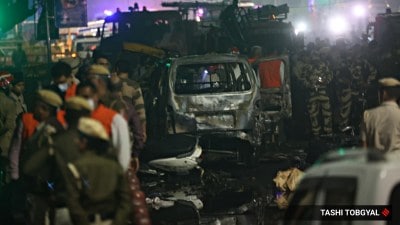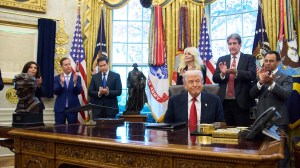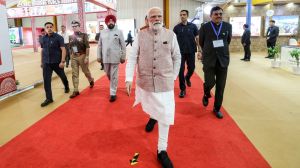West for more space in S-E market
GENEVA, DEC 7: Final negotiations to stitch together a global financial services deal begin in the World Trade Organisation (WTO) tomorrow ...

GENEVA, DEC 7: Final negotiations to stitch together a global financial services deal begin in the World Trade Organisation (WTO) tomorrow amidst expectations that India will better its existing liberalisation offer on the table.
India, where government moves to allow foreign and domestic participation in the insurance sector have been thrown out by Parliament, is being pressed to do more in the banking, securities and related financial sectors. Now with only a caretaker government in place and key policy decisions on hold, negotiators acting on old instructions may find themselves in a difficult situation, observers say.
Washington and Brussels — the key demanders — as well as Japan, have been saying in the run-up to this final lap that opening up financial markets is not just good but essential for south and southeast Asian nations suffering from destabilising currency and stock market crises.
The talks face a December 12 deadline for conclusion. Senior capital-level negotiators have started arriving in Geneva for final negotiations that are slated to go down the wire. While the spotlight during the negotiations has been on the ASEAN (Association of Southeast Asian Nations) economies, the United States and the European Union (EU) are pressuring major developing countries like India and Brazil to open up their financial sectors and vastly improve the offers they made in 1995.
In a recent interview with The Indian Express, US Deputy Trade Representative Jeffry Lang said he expected India’s commitment to liberalisation to be reflected in some way at the WTO system. “On banking, India already allows branch banking, so it ought to be within consistent law and policy to make that kind of commitment here in Geneva.” The top US negotiator also said that “people who don’t have insurance in poor countries are given the opportunity to buy it” at competitive rates in a liberalised insurance sector.
Asian and Latin American countries wonder why they should agree to allow in banks, insurance companies and securities firms from developed nations when their own financial services industries are not looking for a similar access to rich countries’ markets. Simplistic, argues the West. Its contention is: countries like India, Indonesia have vast needs for capital to fund in areas such as infrastructure, education, healthcare etc. A sophisticated financial industry offering access to global capital as well as modern systems of access to this money (computers, etc) underpins all other development efforts, it maintains.
In the last two years, some 45 countries have reworked their offers to open the sector which, according to the WTO, generates $1.2 trillion a day in foreign exchange deals. New offers are expected from a host of developing countries many of which — Colombia, Malaysia, Brazil, Mexico, Egypt, Slovak Republic, Thailand, Mauritius, among others — said last month that their final offers were being worked out. Analysts say several Latin American countries might find it difficult to bind their exchange and stock markets to the WTO at a time when they are under pressure from foreign funds. Diplomats say the US and EU are twisting arms with regard to capital in a bid to force open developing countries’ markets in this sector so that their financial services providers can enter and pick up companies facing closure under International Monetary Fund (IMF) conditionality packages. Though these conditionalities remain largely guarded, negotiators say the IMF is using its financial rescue packages to force countries to make WTO liberalisation commitments.
The negotiations seek to commit WTO members to a minimum level of market opening in banking, insurance and asset management services so that foreign competitors can establish, invest and operate and own under known rules subject to WTO discipline and dispute settlement procedures. The negotiations are extremely complex because the bargaining involves not only new openings, but also maintaining the rights of current investors under what is called "grandfathering" that would preclude divestment pressures. For example, an informal offer by Malaysia that gave no guarantees that it would not force foreign insurance companies from divesting was not received favourably.
The talks almost crashed in 1995 when the US pulled out complaining that offers from countries including India were inadequate. To keep those talks from collapsing, the EU proposed that countries would have till November 1997 to make their best offers. They key targets or what the US called "commercially significant countries" were India, Malaysia, South Korea, Thailand, Singapore, Argentina, Brazil and Chile. Developing country negotiators say trade in services is not the same ball game as trade in goods. While the latter principally involves trans-border transfer, trade in services includes the right of establishment, resource mobilisation and even industrial policy in some cases — issues that need careful understanding in India.





- 01
- 02
- 03
- 04
- 05


























